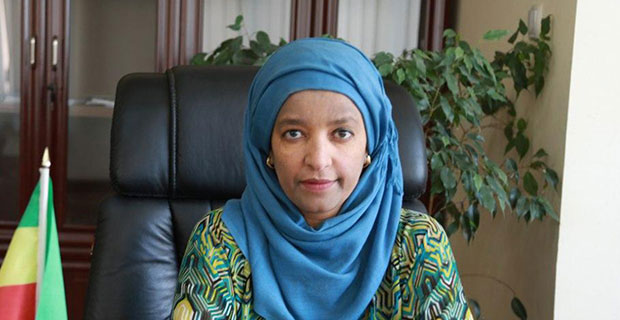
Jan 21 , 2023
By Abeselom Samson
As recorded in rock paintings, the earliest evidence of African trade shows they merchandised among their neighbours and traveled a long distance to make trades like ivory and salts. In today's Africa, most colonies continued to trade inexplicably with the colonial masters that used to rule them.
Between the 14th to 19th centuries, African history is intimately connected with slavery. Scholars like Joseph Inikori argue that the long-term consequences of Africa's slave trade were, to alter the direction of those African economic processes away from development to head toward underdevelopment and dependence.
The question is why, after several epochs formally attaining independence, many African states continue to trade disproportionately to escape poverty and conflict traps. To understand the subject, one needs to get insights from Africa's economic history and the trade approaches the continent passes through.
Scholars presented different narratives to pinpoint their arguments, from market size to the effects of geography proximity. Since the 14th and 15th centuries, Africans have kept losing trade identity and building blocks to trade only among themselves.
Restoring Afro-centric trade is not an accessible business; it must liberate the continent from the "Colonial Legacy" that created significant tariff barriers.
Since the 1950s, fourteen African countries were forced by France to pay the "French Colonial Tax" for the benefits of slavery and colonisation, even though present France is not Charles de Gaulle's France. Not only has this colonial legacy created significant barriers in the area of tariff barriers, cross-border trade, and border controls, but it challenges Africa to move from one end to the other. The slow process of free movement of people severely distorted the continent.
Unless a trade disruption happens, the current regional arrangements are historically tied to colonial trends. West Africa's trading pattern could be an excellent example of the trade structures.
Historically, the Portuguese struggled to break into West African trade networks in the 15th century. But again, history states that Kilwa was one of the wealthiest city-states on the Swahili or East African coast for over two centuries.
Africa is the picture of its history. The missing puzzle is correcting the broken past and moving forward to the present. Colonized identity and trade in Africa still favour the colonial masters. The establishment of colonial rule over the African interior has promoted infrastructure development. However, the scramble pushed Africa to its darkness and disconnected from the rest of the continent and the world.
Debates about economic findings are puzzling for critics of African colonialism. There is evidence of improved, steadily rising incomes over the colonial period, considering the counterfactual and harsh trade pattern in many parts of the continent.
Even though colonialism's imposition on the continent occurred for many reasons, it is time for Africa to prioritize trade and development over policy and aid. It needs to advance and create a solid progressive economy. It is the spell for the 1.3 billion people continent to politically and socially make and exert different trade modalities and arrangements to curve the curse of the cost of poverty. The natural progress of the continent is expected through trade modality using regional and continental meetings.
It is time for African nations and leaders to walk the talk before they return the continent to the vicious circle that has already passed. Trade must start within the continent and proceed globally; otherwise, it is a matter of keeping the colonial legacy.
PUBLISHED ON
Jan 21,2023 [ VOL
23 , NO
1186]


Sponsored Contents | May 22,2023

Radar | Aug 31,2019

Fortune News | Jan 21,2023

Fortune News | Apr 26,2019

Radar | Aug 28,2021

Radar | Jun 07,2025

Life Matters | May 07,2022

Fortune News | Apr 30,2021

Fortune News | Jun 05,2021

My Opinion | Jan 07,2022

My Opinion | 131674 Views | Aug 14,2021

My Opinion | 128040 Views | Aug 21,2021

My Opinion | 126002 Views | Sep 10,2021

My Opinion | 123625 Views | Aug 07,2021

Dec 22 , 2024 . By TIZITA SHEWAFERAW
Charged with transforming colossal state-owned enterprises into modern and competitiv...

Aug 18 , 2024 . By AKSAH ITALO
Although predictable Yonas Zerihun's job in the ride-hailing service is not immune to...

Jul 28 , 2024 . By TIZITA SHEWAFERAW
Unhabitual, perhaps too many, Samuel Gebreyohannes, 38, used to occasionally enjoy a couple of beers at breakfast. However, he recently swit...

Jul 13 , 2024 . By AKSAH ITALO
Investors who rely on tractors, trucks, and field vehicles for commuting, transporting commodities, and f...

Jun 28 , 2025
Meseret Damtie, the assertive auditor general, has never been shy about naming names...

Jun 21 , 2025
A well-worn adage says, “Budget is not destiny, but it is direction.” Examining t...

Jun 14 , 2025
Yet again, the Horn of Africa is bracing for trouble. A region already frayed by wars...

Jun 7 , 2025
Few promises shine brighter in Addis Abeba than the pledge of a roof for every family...

Jun 29 , 2025
Addis Abeba's first rains have coincided with a sweeping rise in private school tuition, prompting the city's education...

Jun 29 , 2025 . By BEZAWIT HULUAGER
Central Bank Governor Mamo Mihretu claimed a bold reconfiguration of monetary policy...

Jun 29 , 2025 . By BEZAWIT HULUAGER
The federal government is betting on a sweeping overhaul of the driver licensing regi...

Jun 29 , 2025 . By NAHOM AYELE
Gadaa Bank has listed 1.2 million shares on the Ethiopian Securities Exchange (ESX),...